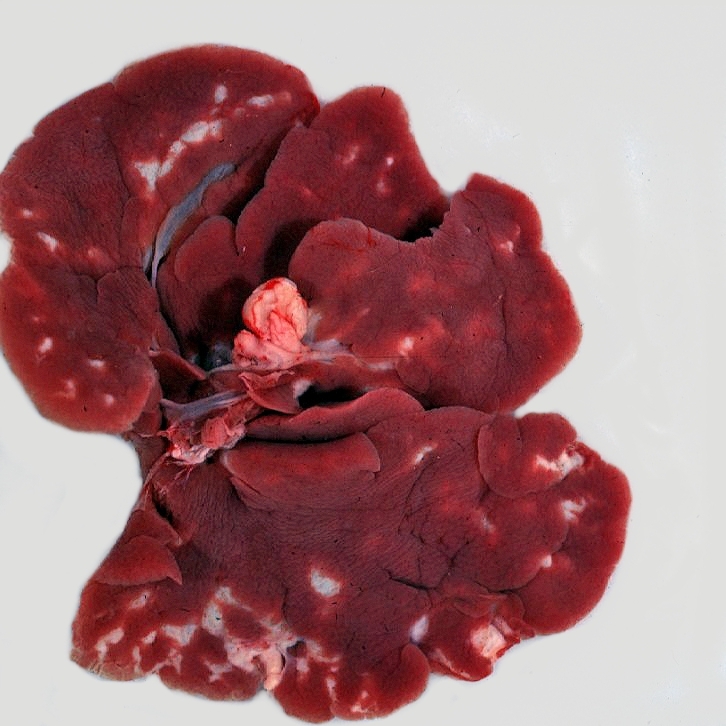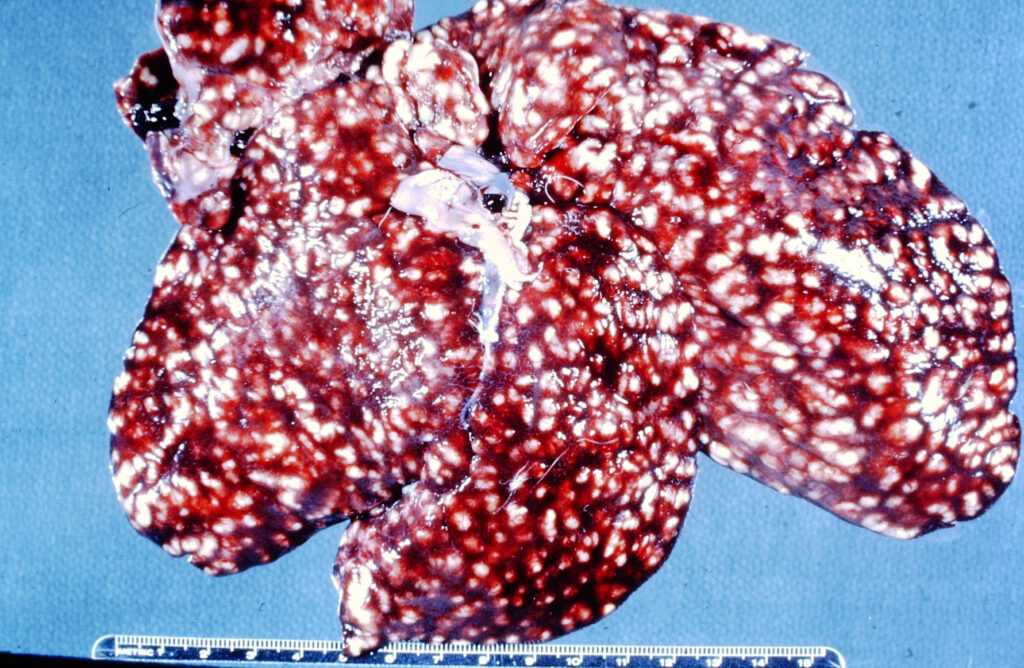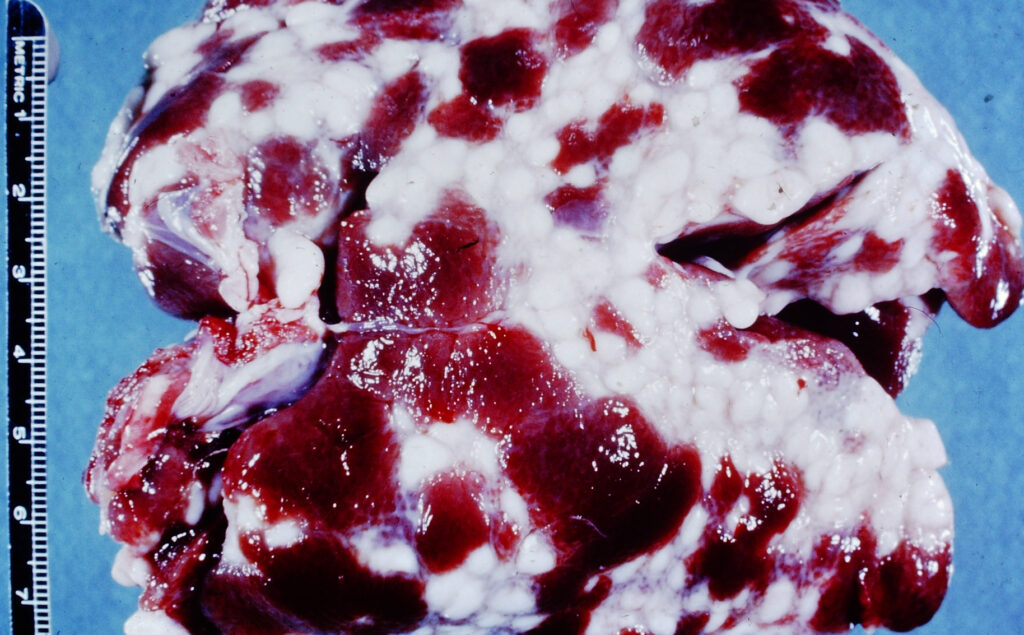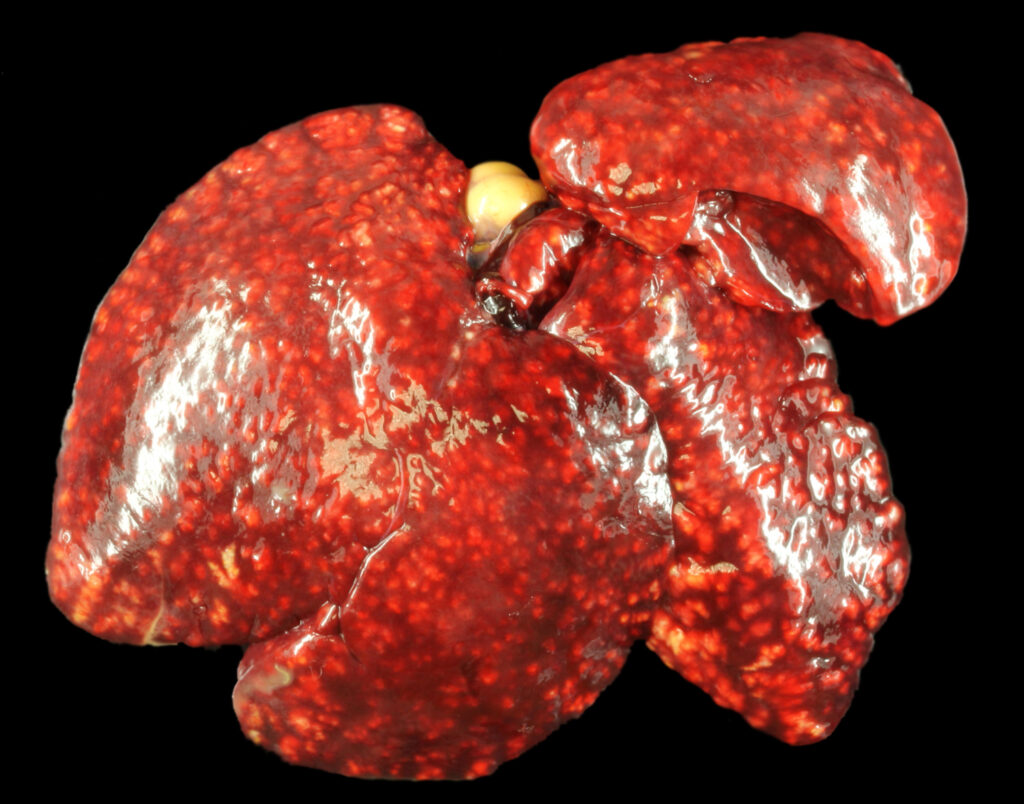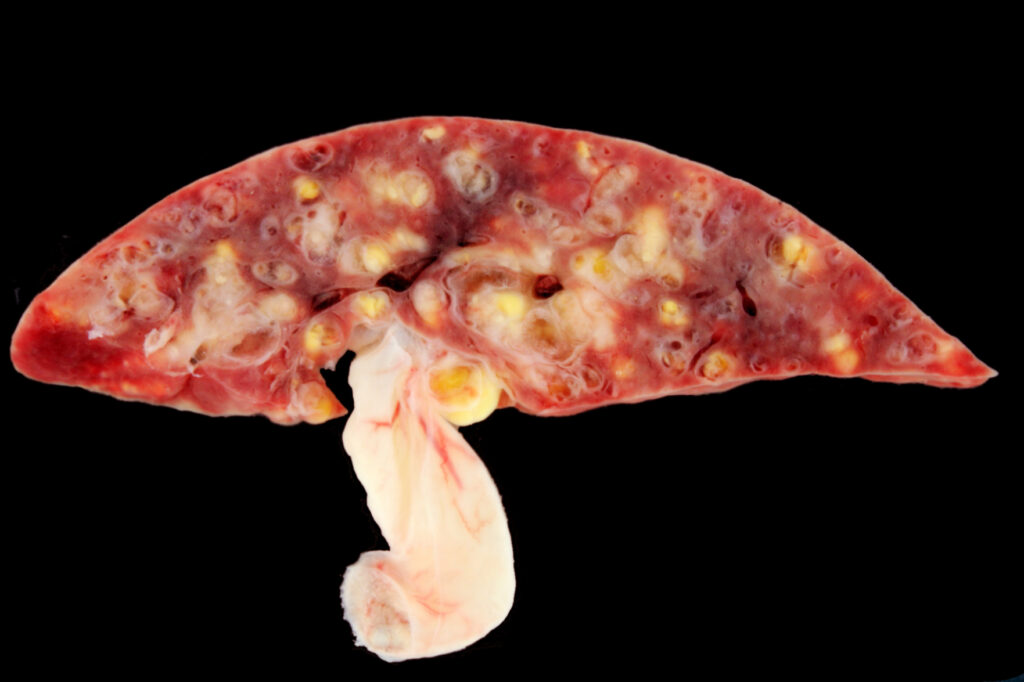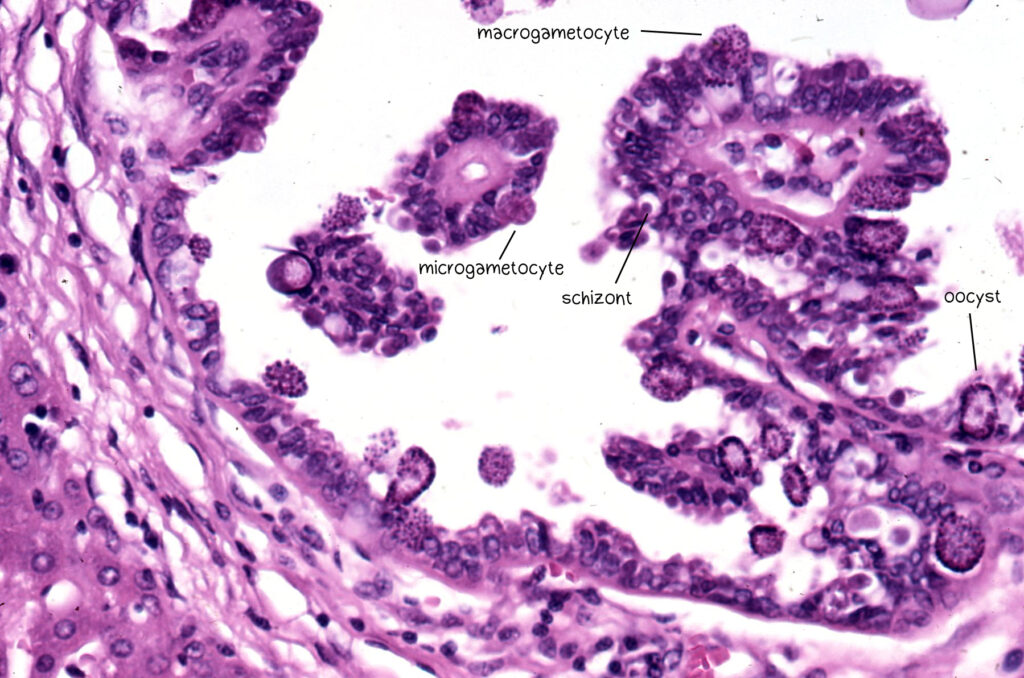Today’s path rounds are on 𝐡𝐞𝐩𝐚𝐭𝐢𝐜 𝐜𝐨𝐜𝐜𝐢𝐝𝐢𝐨𝐬𝐢𝐬!
𝐖𝐡𝐚𝐭 𝐢𝐬 𝐢𝐭?
𝐇𝐞𝐩𝐚𝐭𝐢𝐜 𝐜𝐨𝐜𝐜𝐢𝐝𝐢𝐨𝐬𝐢𝐬 is an infection of the liver with 𝐜𝐨𝐜𝐜𝐢𝐝𝐢𝐚, which are small single celled protozoans. Typically, these protozoa cause intestinal disease, making hepatic coccidiosis a somewhat unique presentation for this parasite’s life cycle.
𝐖𝐡𝐨 𝐠𝐞𝐭𝐬 𝐢𝐭?
This disease is typically seen in rabbits!
𝐖𝐡𝐚𝐭 𝐜𝐚𝐮𝐬𝐞𝐬 𝐢𝐭?
Hepatic coccidiosis in rabbits is caused by the coccidian 𝐄𝐢𝐦𝐞𝐫𝐢𝐚 𝐬𝐭𝐢𝐞𝐝𝐚𝐞. This protozoa enters the rabbit in contaminated feed or water. From there, they invade into the small intestine and migrate to the liver. Once in the liver, they make themselves a house in the cells lining the bile ducts, and begin to replicate. These protozoa will then release their infective egg form into the bile, to eventually be excreted in the animal’s feces and continue the life cycle.
𝐖𝐡𝐲 𝐢𝐬 𝐭𝐡𝐢𝐬 𝐚 𝐩𝐫𝐨𝐛𝐥𝐞𝐦?
The bile duct cells don’t love having protozoa in them, so they will often become 𝐡𝐲𝐩𝐞𝐫𝐩𝐥𝐚𝐬𝐭𝐢𝐜 (increase in number) and 𝐡𝐲𝐩𝐞𝐫𝐭𝐫𝐨𝐩𝐡𝐢𝐜 (increase in size) as a response to their new friends. The protozoa will also stimulate a lot of inflammatory cells to come into and around the bile ducts, which can give the bile ducts a white appearance that can be seen at necropsy. Cool!
Ultimately, having the bile ducts going crazy and having an inflammation party in the liver can lead to liver disease, which makes the rabbits feel quite sick. These rabbits may stop eating and will not grow to their full size. Sometimes they can even die from infection if it is severe enough.
𝐇𝐨𝐰 𝐢𝐬 𝐢𝐭 𝐝𝐢𝐚𝐠𝐧𝐨𝐬𝐞𝐝?
The best way to diagnosis this disease is on a necropsy, where you see white nodules on the liver representing the proliferating and inflamed bile ducts. In a living rabbit however, the best diagnosis would be a fecal float to detect the protozoal eggs, combined with an ultrasound to visualize the nodules on the liver.
𝐇𝐨𝐰 𝐢𝐬 𝐢𝐭 𝐭𝐫𝐞𝐚𝐭𝐞𝐝?
Unfortunately treatment is very difficult for these little guys. The rabbits must have a long course of 𝐜𝐨𝐜𝐜𝐢𝐝𝐢𝐨𝐬𝐭𝐚𝐭𝐬 (medications that prevent coccidial replication) to reduce the shedding of the infective eggs, combined with environmental changes to reduce transmission of any eggs that are shed. Thankfully, if a rabbit does successfully recover from infection with complete clearing of the protozoa, they are immune and will not get re-infected.
𝐏𝐡𝐨𝐭𝐨𝐬
1-5) Some wonderfully spotty livers showing the white nodules of bile duct proliferation!
6) What a pathologist would see under a microscope! I have tried to identify as many different life stages of the protozoa as I can.
𝐒𝐨𝐮𝐫𝐜𝐞𝐬
Mayer, J. Parasitic diseases of rabbits. Merck Vet Manual 2021.
Terio, KA, McAloose, D, St. Leger, J. Pathology of Wildlife and Zoo Animals. 2018.
Photos 1-6 © Noah’s Arkive contributors Acland, Leathers, Jakowski, Reyes-Gomez licensed under CC BY-SA 4.0.

